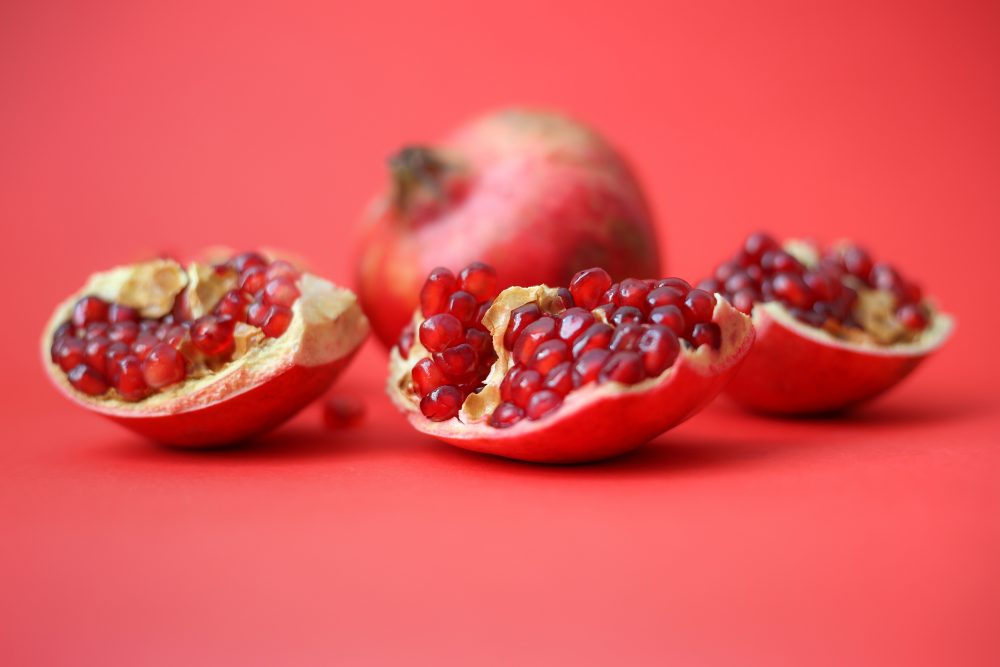Pomegranate Nutrition

Pomegranates are often called nutritional superfoods, and for good reason. They’re high in phytochemicals and antioxidants such as flavonols — and the anthocyanins that give them their pigment. In fact, research has found that the pomegranate has an antioxidant potential even greater than that found in red wine or green tea, two other foods renowned for their superfood status.
These colorful fruits also contain a number of important vitamins and minerals. For instance, they’re a good source of vitamin C, vitamin K1, potassium, and folate. One medium-sized pomegranate offers around 11 grams of fiber. And if you wondered whether fruits have protein, a pomegranate contains a whopping five grams. (Not bad for a fruit that’s also 82% water!)
The seeds encapsulated in the arils also contain a number of antioxidants as well as a unique fatty acid called punicic acid, which may have benefits for reducing inflammation and insulin resistance, according to some animal studies.
Keep in mind that it’s the pomegranate arils — not the juice alone — that provide the fiber and the protein. Plus, when pomegranates are processed into juice, much of their water-soluble B vitamins and vitamin C, as well as some other minerals, are reduced or lost. And while both the arils and the juice contain a considerable amount of sugar, both forms are considered to be low to mid-range on the glycemic index, meaning that they’re not going to spike your blood sugar dramatically after consuming them. Still, I’d recommend eating the whole arils, including the seeds inside, to get the most nutrition.
( Excerpt taken from The Food Revolution Network)
